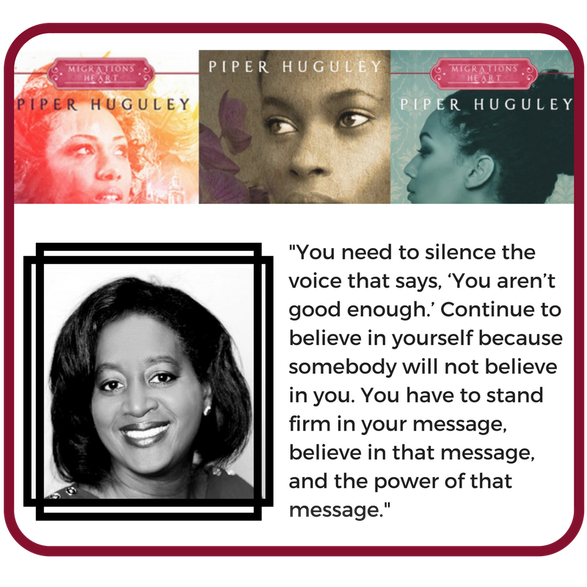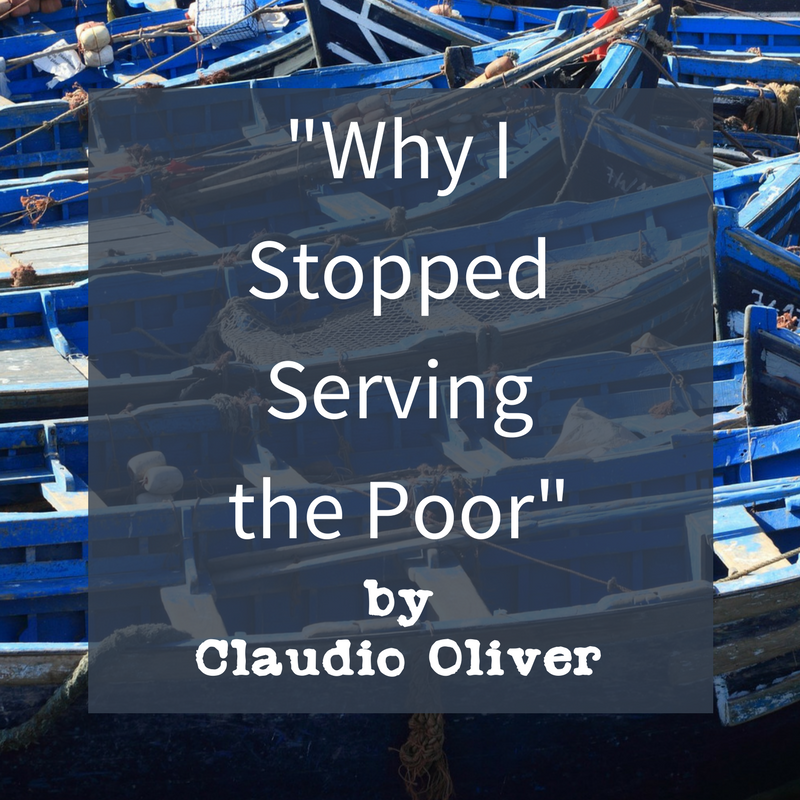|
Piper Huguley is an author of historical fiction featuring African American characters. She is an Amazon bestselling author, winner of The Golden Rose Contest in 2013 and Golden Heart finalist in 2013 & 2014. She is a wife, a mom, and a professor.
Piper has been writing on and off for a long time. “Since I was young,” she said. When her son was born, she took a break from writing. A decade later, when he began spending time at football practice, she got back into writing. For Piper, an essay by Langston Hughes, was a catalyst for her writing: Where is the novel or biographical study of Frederick Douglass who defied death to escape from slavery, defied mob-wrath to resist Jim Crow, defied narrowness and convention to side with woman suffrage in a day when women were considered fit only for housewives, defied the racial chauvinism of both his own race and the whites in his second marriage? In other words, a MAN, strong and unafraid, who did not die a suicide, or a mob-victim, or a subject for execution, or a defeated humble beaten-down human being. Douglass lived greatly, triumphed over his times, and left a flaming pattern for the youth of all ages and all countries. But no Negro writes a novel about him. No, we write about caged animals who moan, who cry, who go mad, who are social problems, who have no guts. We have a need for heroes. We have a need for books and plays that will encourage and inspire our youth, set for them examples and patterns of conduct, move and stir them to be forth-right, strong, clear-thinking, and unafraid. Langston Hughes, The Need for Heroes “Most people know about his poetry, but don’t realize he wrote some great prose too,” Piper said. “A lot of what he says is still true. Where is the great biographical of Frederick Douglass, why has it not been released yet?” When it came to publishing, Piper thought she’d publish in the romance genre. “I always thought it would be romance because I thought that’d be an easy place to get published. After a few years of trying … I began to realize on the Christian side how little African American historical fiction there was published especially by African Americans. I thought, ‘Here’s a niche to be filled, let me go ahead and start filling it,’” she said. Piper is a professor at Spelman College near Atlanta Georgia. “I don’t know why it didn’t occur to me sooner to write historical, as my day job as a professor. It wasn’t something I had to do, it was a backdrop of knowledge. Once I decided to go about doing that, I began researching a particular event, which was the Great Migration: the largest intracontinental migration in the U.S.—how black people left the South and went North and West. Knowing that my paternal family was a part of that, I thought to explore that more and develop a series of stories that would explain that,” she said. As she began developing this historically-based series, she realized the call was bigger than she first thought. “It made me come to understand that I owe a debt to the people who came before me and who weren’t as privileged as I am to be able to speak,” she said. “It really struck me that this was something that needs to be done: to speak for those in the past.” Piper said that her research brought her greater insight into her family’s story. She realized that her paternal grandparents’ family migrated in the same fashion as the larger, communal migration pattern that many African Americans followed at the time. “They moved from western Alabama to Atlanta, then a year later to Pittsburgh. It hit me that the place where they lived was just outside the gates of Spelman College where I now teach,” Piper said. She said that her grandmother talked about Spelman college and often wondered what went on behind the gates of the women’s college. While her grandmother was the same age as some of the students, she was not able to attend herself because she was a wife and young mother. Piper said that she sees that her grandmother’s moves allowed her to find out just what went on behind those gates. Piper found publishing her work was an uphill climb. “I just assumed that publishers would throw their doors open, but it didn’t quite work out that way,” she said. “I targeted Historical Romance within the Christian Booksellers Association (CBA)—I was always looking into the romance genre, but after 3 tries, I realized this was not something they wanted to pursue. They started giving excuses, as to why they wouldn’t publish. I realized then that they aren’t going to publish black people and black characters. Even after a certain amount of what I thought was sufficient market research—that was when I understood: OK. That was what the CBA was going to be about,” she said. “At RWA [Romance Writers of American Conference] in 2013 a very important Christian agent told me that my Christian fiction would not be published for 20 years because of the nature of the CBA,” she said. “When I was on the fourth book in the series, the agent told me why my books would not be published in 20 years. She honestly believed she was doing me a favor by letting me know in an upfront way. She failed to realize or care that I had to go through several stages of ‘winning’ in order to get that appointment to talk to that agent in the first place. It was not part of her thought process, that my story had already been vetted by a certain audience. That is how deeply entrenched racism is by the CBA,” Piper said. Around the same time Piper heard this comment, her mother died. “I received a small inheritance that would allow me to self-publish. So my thought was that if I put my story out there, maybe people would see what it is,” she said. “At that point I had two series. So I thought to self-publish one, and then continue submitting the other. That happened simultaneously. I had given up on the CBA and thought maybe the American Booksellers Association (ABA) would take it as historical, which is what happened,” she said. “The irony is that my sweet, inspirational story found acceptance with a publisher who published all kinds of romance stories, but there was no acceptance for it in the CBA. Even the regular publishing industry has their issues with racism, but they can point to their handful of books by African American authors that they publish every year. The CBA has zero. That is the main thing that I really don’t get: this is not Christian behavior,” she said.
Eight years later, Piper said that this is still going on. “I had someone tell me a couple of weeks ago: Maybe there is nobody [African Americans] writing that [fiction with African American characters]. That’s not true. But now you have self-publishing that shows it’s not true. Maybe self-publishing has made them aware and opened their eyes a bit,” she said.
Piper wishes publishers would read the writing on the wall. “Thoroughly backed up by data by Nielson and by the Census: a more diverse United States is coming, in many ways it’s already here. The strategy of excluding POC [people of color] experiences, authors, editors, and marketers from a company is not a long-term answer for survival. In the years since these things have happened, the CBA keeps shrinking,” she said. Piper has some advice for future/current writers. “It’s crucial in any type of publishing career that you take some time building a platform. People think that is something that can be rushed through, but it cannot. It takes a couple of years, minimum of two, to build a platform and to have your message be consistently articulated on that platform. Even if you are traditionally published they are still looking for you to have that,” she said. “You have to put in a certain amount of time and work, and now I’m beginning to see benefits of that. People expect things to happen instantly, and it’s not instant,” she said. “At the same time, while people are building their platform, they can be working on their craft.” Piper said she isn’t sure if self-publishing the one series actually led to the other series being picked up by the ABA. But one thing she is sure about, “You need to silence the voice that says, ‘You aren’t good enough.’ Continue to believe in yourself because somebody will not believe in you. You have to stand firm in your message, believe in that message, and the power of that message,” she said. Find out more about Piper Huguley by visiting her website and her Amazon Author Page.
2 Comments
cilla Johnson
2/14/2018 02:35:31 pm
Love work by Piper Huguley. She has a way of keep us "woke" without making you feel like you are in a class room.
Reply
Leave a Reply. |
Gena's
|


 RSS Feed
RSS Feed

